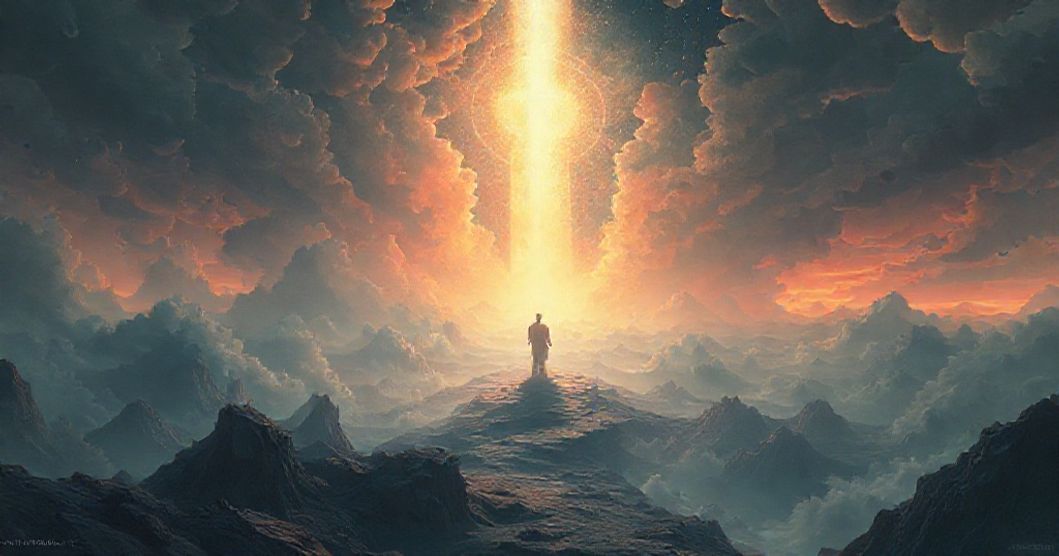The Apocalyptic Dream of Transcendence: Exploring Divine Longing and Archetypal Conflict
Part 1: Dream Presentation
Dreams have a way of confronting us with our most primal questions, often through apocalyptic imagery that feels both terrifying and strangely familiar. This dream narrative, rich with religious symbolism and personal spiritual yearning, offers a window into the dreamer’s unconscious landscape—a terrain where cosmic conflict, divine presence, and existential transformation collide in vivid detail.
I’ve experienced apocalyptic dreams throughout my life, but this particular vision felt uniquely intense and charged with religious symbolism. In it, the world was ending in a manner reminiscent of a biblical rapture—God descended, and the heavens seemed to split open. The air crackled with divine presence, and the earth trembled beneath the weight of His arrival. Simultaneously, the devil emerged in fierce opposition, a battle of cosmic proportions unfolding before my eyes. Everyone on earth was forced to witness this celestial clash, yet their participation felt involuntary, as if caught in a storm they couldn’t escape. People’s eyes bled, not from pain but from the overwhelming light of the divine, leaving them blinded yet strangely transfixed. I myself stood in the middle of this chaos, overwhelmed by a paradoxical mixture of terror and awe. Gradually, I felt my body transforming, becoming golden and liquid, as if dissolving into a thick, luminous statue—my form melting not from destruction, but from the sheer magnitude of the experience. The world itself seemed to dissolve around me, lightning and thunder rolling across the sky in a rhythmic, judgmental cadence, and everyone died almost instantly, their existence ceasing as the divine force overwhelmed the earth. This wasn’t just a dream; it was a visceral encounter with transcendence and annihilation.
I’ve had similar dreams since childhood, particularly between the ages of 10 and 15, when they felt profoundly terrifying, as if the end of the world were a tangible threat. But recently, after a long absence, these dreams have returned with a new intensity. Now, instead of chaos, I hear God speaking—a voice so powerful it shakes me to my core. I cover my ears, trembling, because the sound feels both like a warning and a call, sometimes resembling a trumpet’s blare or a leering whisper. Each time these dreams conclude, I wake in a sweat, my body still quaking. I’ve developed a ritual: upon waking, I step outside my house and recite the 'Our Father' prayer, even though I’m not religious. Oddly, after praying, a cold chill still races down my spine, as if the dream’s aftershock lingers in my consciousness. I’m a 30-year-old man with long hair and a scruffy beard, drawn to the Grateful Dead’s music and occasional use of hallucinogens to explore the divine. These dreams, with their mix of terror and transcendence, feel like a mirror held up to my spiritual longings, even as I navigate a non-religious path toward connection.
Want a More Personalized Interpretation?
Get your own AI-powered dream analysis tailored specifically to your dream
🔮Try Dream Analysis FreePart 2: Clinical Analysis
Symbolic Landscape: The Language of Apocalypse and Transformation
The dream’s imagery is densely symbolic, each element serving as a portal into the dreamer’s unconscious. The apocalyptic scenario—God and the devil battling for cosmic dominance—evokes the Jungian concept of the shadow and anima/animus, where opposing forces represent the integration of light and dark aspects of the psyche. The
